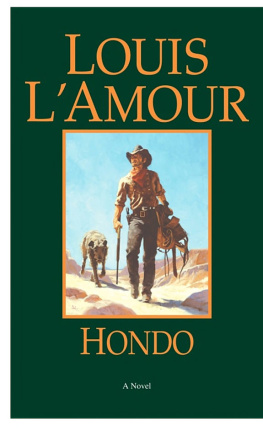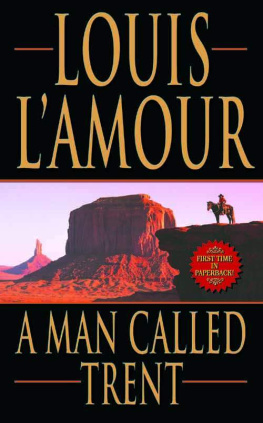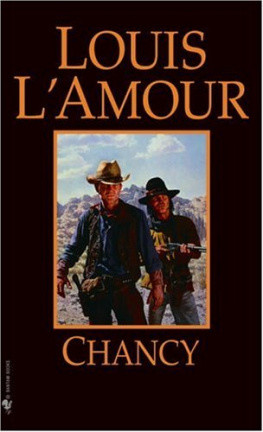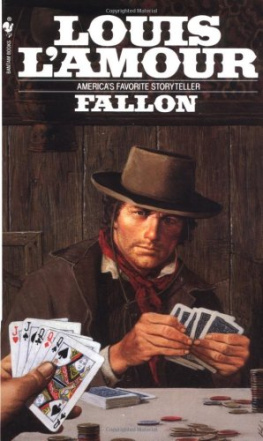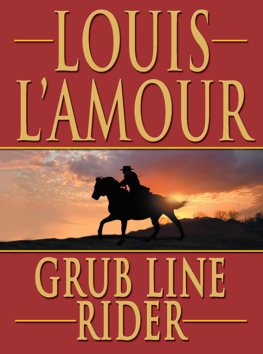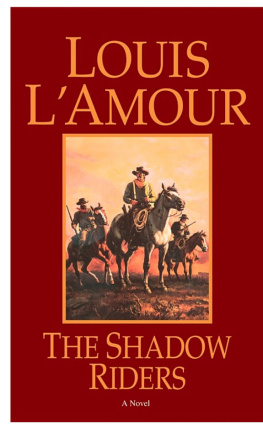Louis LAmour - Flint
Here you can read online Louis LAmour - Flint full text of the book (entire story) in english for free. Download pdf and epub, get meaning, cover and reviews about this ebook. year: 2005, publisher: Bantam, genre: Detective and thriller. Description of the work, (preface) as well as reviews are available. Best literature library LitArk.com created for fans of good reading and offers a wide selection of genres:
Romance novel
Science fiction
Adventure
Detective
Science
History
Home and family
Prose
Art
Politics
Computer
Non-fiction
Religion
Business
Children
Humor
Choose a favorite category and find really read worthwhile books. Enjoy immersion in the world of imagination, feel the emotions of the characters or learn something new for yourself, make an fascinating discovery.

- Book:Flint
- Author:
- Publisher:Bantam
- Genre:
- Year:2005
- Rating:4 / 5
- Favourites:Add to favourites
- Your mark:
- 80
- 1
- 2
- 3
- 4
- 5
Flint: summary, description and annotation
We offer to read an annotation, description, summary or preface (depends on what the author of the book "Flint" wrote himself). If you haven't found the necessary information about the book — write in the comments, we will try to find it.
Flint — read online for free the complete book (whole text) full work
Below is the text of the book, divided by pages. System saving the place of the last page read, allows you to conveniently read the book "Flint" online for free, without having to search again every time where you left off. Put a bookmark, and you can go to the page where you finished reading at any time.
Font size:
Interval:
Bookmark:
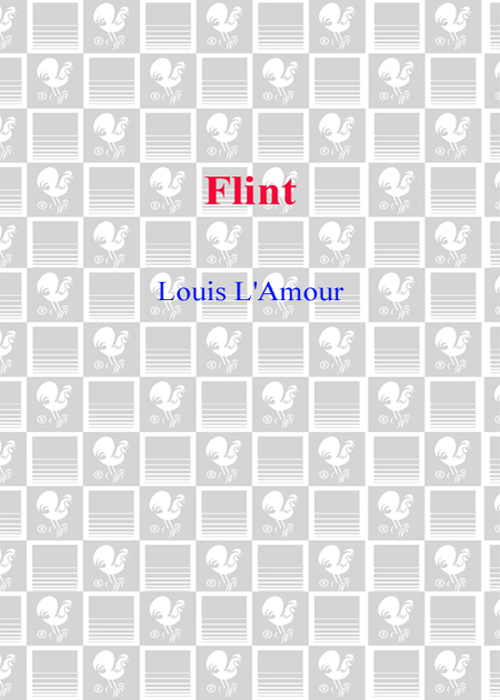
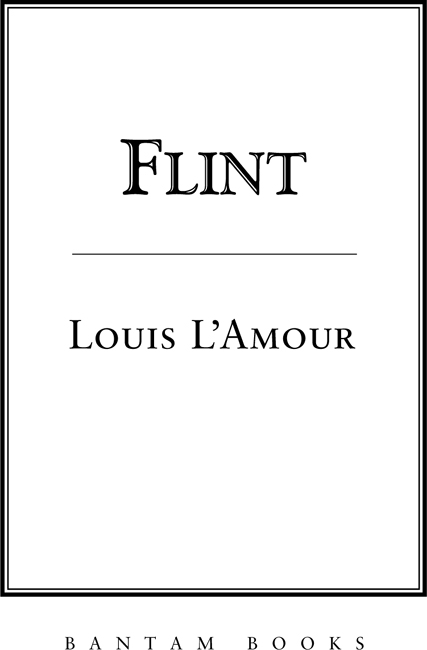
Contents
CHAPTER 1
I T IS GIVENto few people in this world to disappear twice but, as he had succeeded once, the man known as James T. Kettleman was about to make his second attempt.
If he did not succeed this time he would never know it, for he would be dead.
When a man has but a few months to live, he can, if he so wills, choose the manner of his going, and Kettleman had made such a choice. He was now on his way to a place of which he alone knew, and there he would die. He would die as he had livedalone.
It was ironic that he who hated the West should return there to die, but like a wild animal which knows when death is upon it, he was seeking a dark and lonely place where he could die in peace, and in his own way.
At this moment no man in the railroad car looked stronger, more alive, more resolute, yet the seed of death was in him and the plant had but a little while to grow.
There were five people in the car. The lights were dim, the passengers lay sprawled in uncomfortable sleep. The train rushed westward through the cold, clear night, carrying the man steadily toward his final destination.
A very pretty young woman, who had got on at Santa Fe, sat a few seats ahead of him and across the aisle. Farther front, three men were seated, each traveling alone. Occasionally the conductor entered, accompanied by a blast of cold air. Several times he added fuel to the cast-iron stove.
People interested Kettleman only as prospective antagonists, and of the men in the car only one seemed likely to fit that category. He was a straw-haired man with a lean and dangerous look, like a wolf among sheep.
The girl was tall, gracefully slender, and her brown eyes had a way of looking directly at a man that was frank without boldness. Kettleman decided she was a girl who had been much around men, that she was used to them and liked them. Her name was Nancy Kerrigan. He overheard it when she was giving directions for packages to be placed in the baggage car.
The country outside was invisible. The windows had steamed over, and the train moved as if through an endless tunnel. To Kettleman it did not matter, for he knew every foot of this roadbed and the surrounding country from descriptions which had come to his desk in New York.
The high plain was broken at intervals with long ridges and outcroppings of lava, and in the mountains there was marketable timber. When he began planning his second disappearance, Kettleman had gone over all available reports and maps.
They were climbing steadily. Ahead were high mesas, more lava, and occasional ruins. Soon the train would slow for a long, steep grade. When that time came he would step off the train into the darkness.
His destination was familiar only from a description given him fifteen years ago, over a campfire, by a man who had often used the place for a hideout. When he left the train he would return to the oblivion from which he had emerged fifteen years earlier.
Then James T. Kettleman would cease to existalthough actually he had ceased to exist a few days ago, in Virginia. For the few weeks that remained to him he would be nameless once more.
To disappear the first time had been relatively easy for the lanky, seventeen-year-old youngster he was then.
No one noticed him when he came into the saloon at The Crossing that night with Flint. It was not until the brief silence that followed the blasting of guns that their attention was drawn to him by the cocking of his gun.
The men who killed Flint had scarcely seen the boy until that moment, but, within the space of five seconds, five of them were shot dead and two were dying. Two more were wounded, but would live to carry the memory of that shocking five seconds to their graves.
And in the darkness after the lights had been shot out, the boy had carried Flint from the room.
There was a doctor at an Army post twenty miles away, but they were never to make it.
Legend was born that night in Kansas, and the story of the massacre at The Crossing was told and retold over many a campfire. Neither the man at the card table nor the youngster who carried him away was known, and both vanished as if the earth had opened to receive them.
The events preceding the shooting provided only the information that two roughly dressed men had come in out of the night, and one bought chips in a poker game while the other dozed near the door. This was the youngster who, upon that night, was to shoot himself into Western history.
The man at the table played a shrewd, intelligent game, and at the end of two hours he was winner by a small amount. The first indications of trouble came from the bar where a group of Texas trail drivers were drinking.
The trail drivers had noticed the stranger playing cards and, after some whispering among them, they had drifted over to gather around the table. Suddenly two of the trail hands grabbed the stranger's arms, and one of the others said, This man is a hired killer. Then four of the trail drivers fired into his body.
In the instant of silence that followed the shooting they heard the click of a drawn-back gun hammer, and every head turned. He was my friend, the youngster said, and he started shooting.
Of the five killed in the first blast, four died from head shots, all fired in the split seconds before somebody shot out the lights.
Of the two survivors, neither would talk, but one of the dying men had whispered, Flint! It was rumored that Flint was the name of an almost legendary killer who was occasionally hired by big cattle outfits or railroad companies.
The train whistled, the lonely sound trailing off across the wind-swept plains. Kettleman got out his pipe and lighted it. His two bags and haversack were at the back of the car. When he opened that door there would be a moment when the cold air might awaken the others, but he would be gone.
Up to a point he had planned every move, but once arrived at Flint's old hideout there would be nothing to do but wait. Some time ago his doctor told him he would not live a year, and most of that year had passed.
He sat in what was called a parlor car, because of its elaborate lamp fixtures and narrow strips of mirror between the windows. In one of these he glimpsed himself.
His face was lean and hard, triangular, with high cheekbones, green eyes, and a strong jaw. His sideburns were long in the fashion of the time, his hair dark brown and curly. In the light it showed a tinge of red. His skin was dark, his features, except for his eyes, normally without expression.
James T. Kettleman, financier and speculator, had often been called a handsome man. He had never been called a friendly one.
In the fifteen years since leaving Kansas he had not been west of the Appalachians until now.
There had been more than fifteen hundred dollars in Flint's pockets when he died on that rain-soaked Kansas hillside, following the shooting at The Crossing. The boy who was to become James T. Kettleman had sixty dollars of his own, which he used to buy an outfit of store clothes in Kansas City.
He traveled to New York and sold his four horses for an additional four hundred dollars. With this stake he started in business. It was more money than either Jay Gould or Russell Sage had started with.
The name Kettleman was a switch on cattleman, a name invented for him by Flint when the boy entered school. He had never had a name of his own.
Next pageFont size:
Interval:
Bookmark:
Similar books «Flint»
Look at similar books to Flint. We have selected literature similar in name and meaning in the hope of providing readers with more options to find new, interesting, not yet read works.
Discussion, reviews of the book Flint and just readers' own opinions. Leave your comments, write what you think about the work, its meaning or the main characters. Specify what exactly you liked and what you didn't like, and why you think so.

